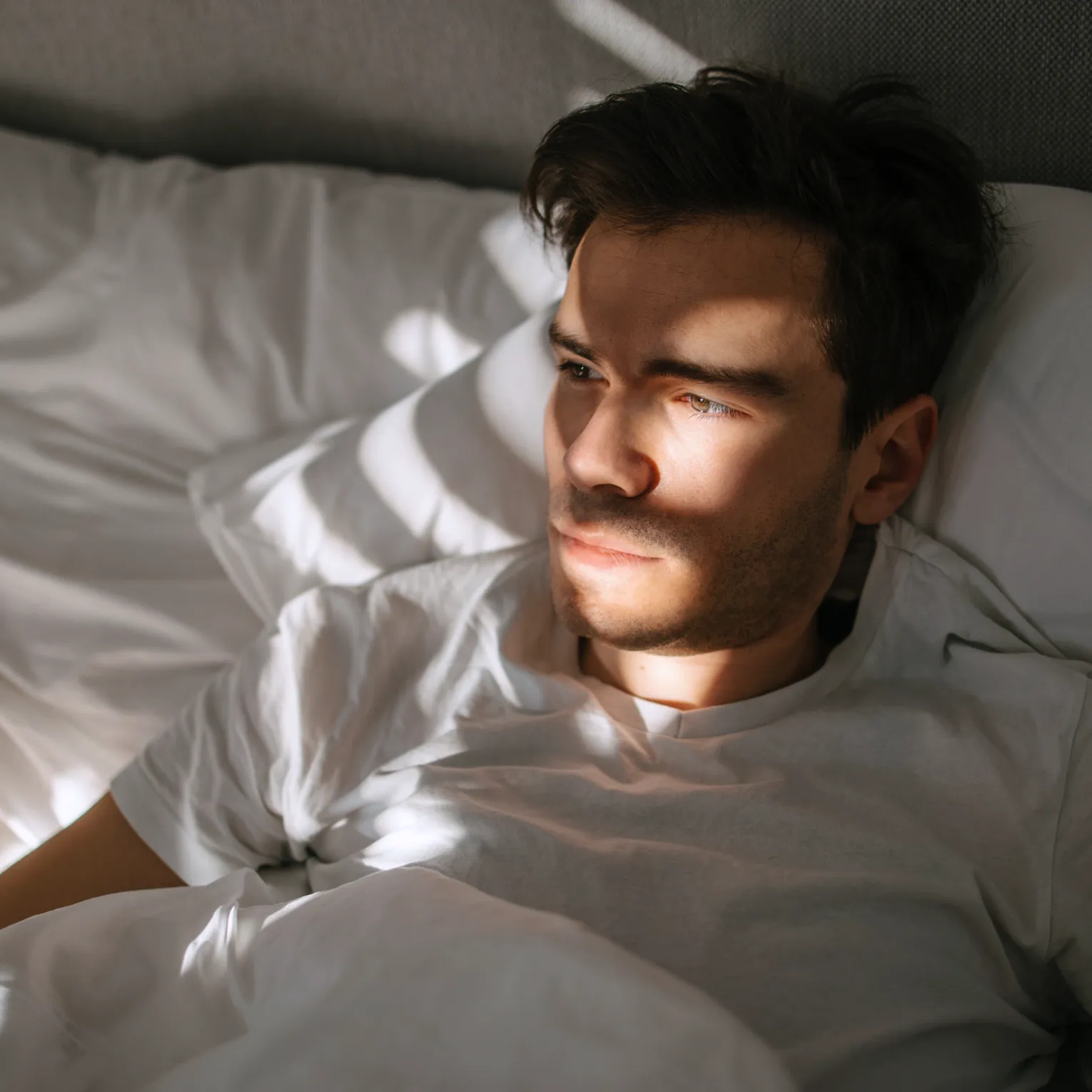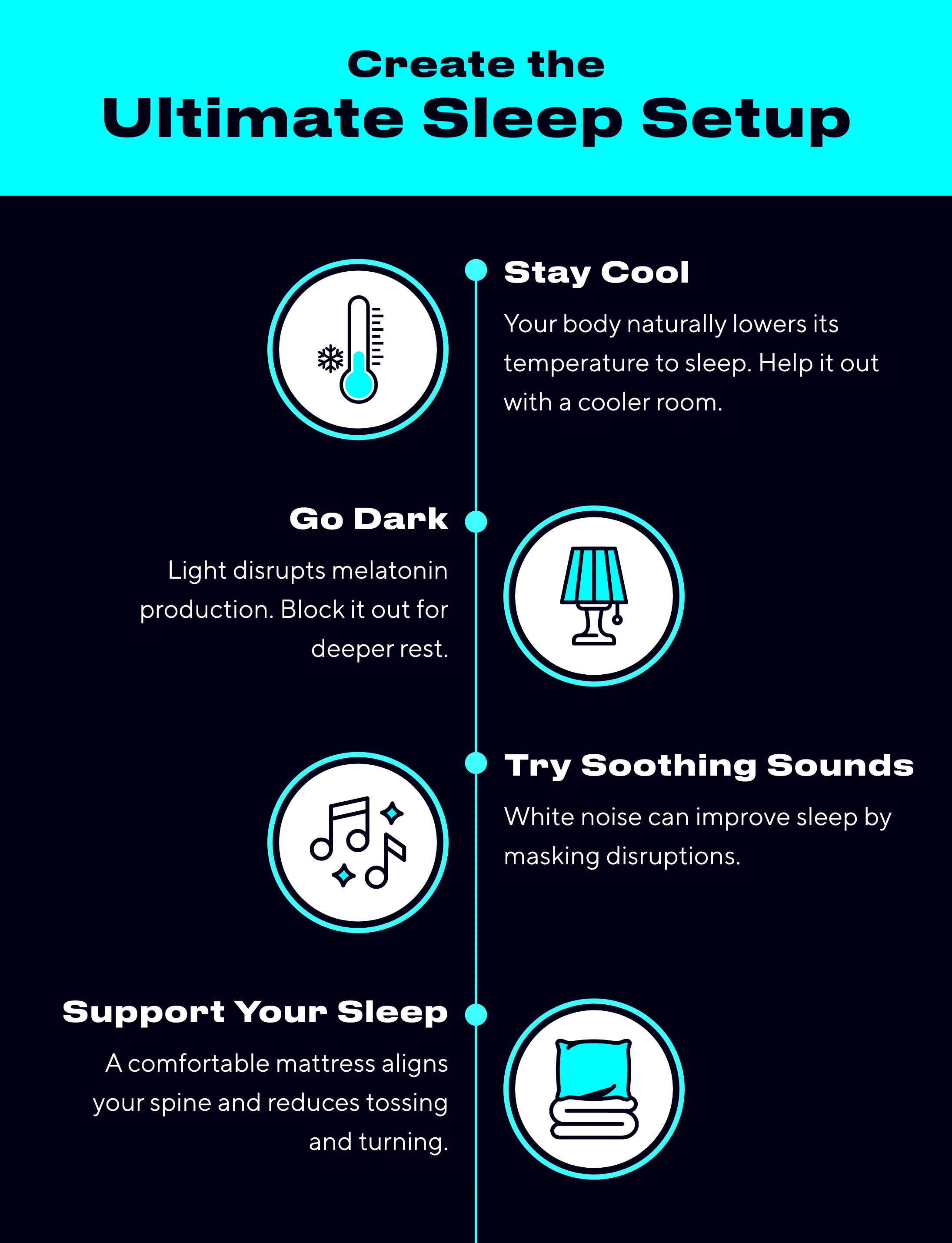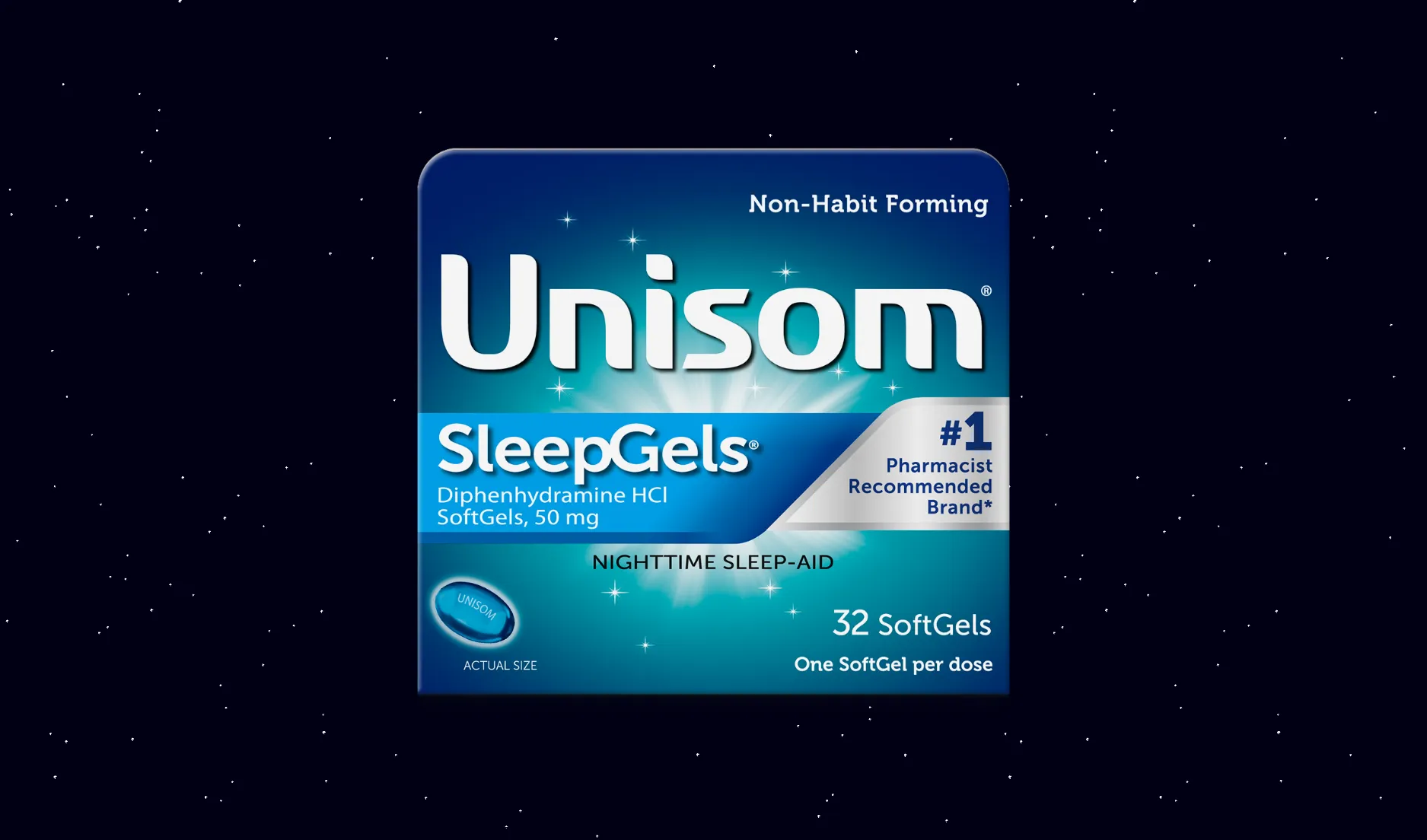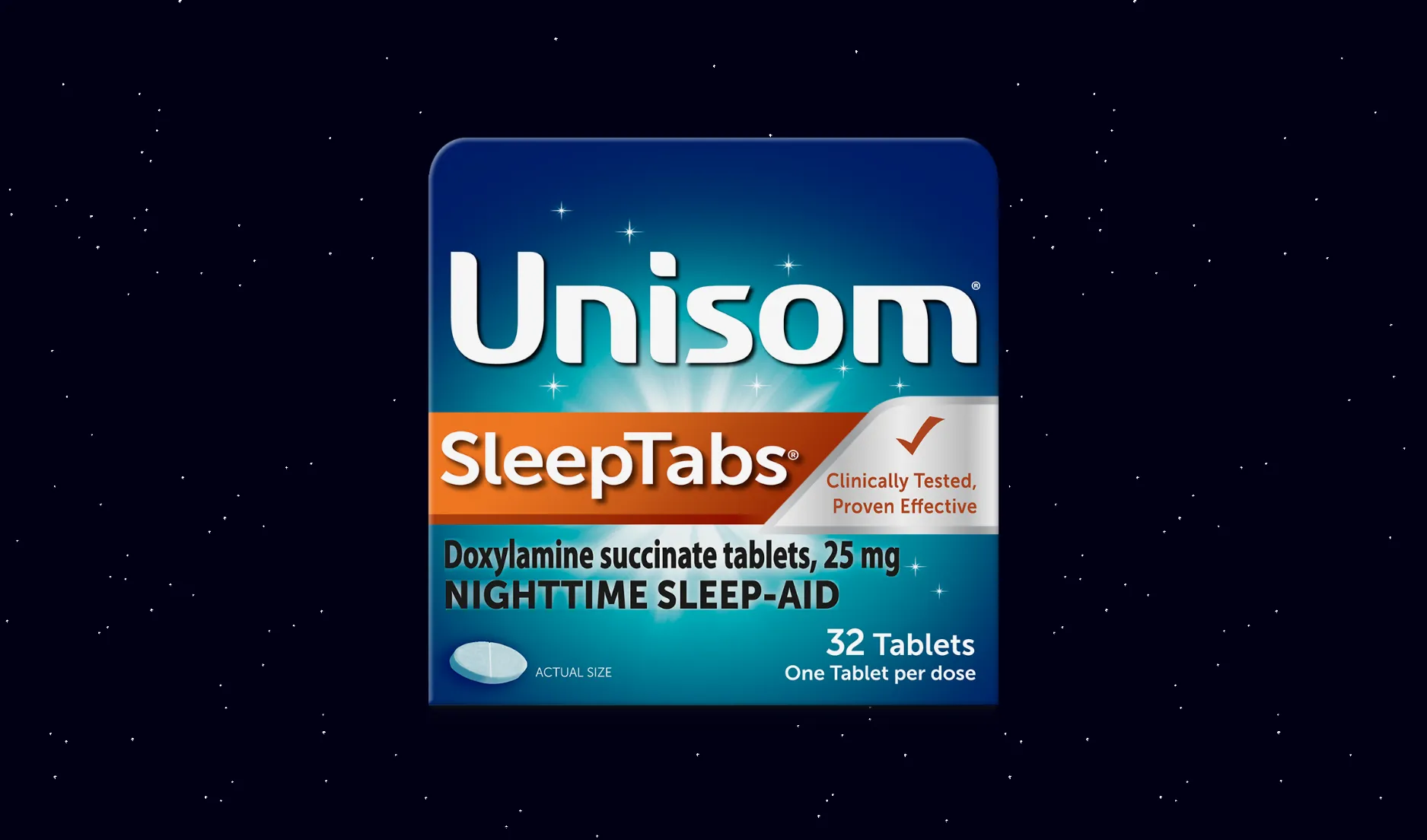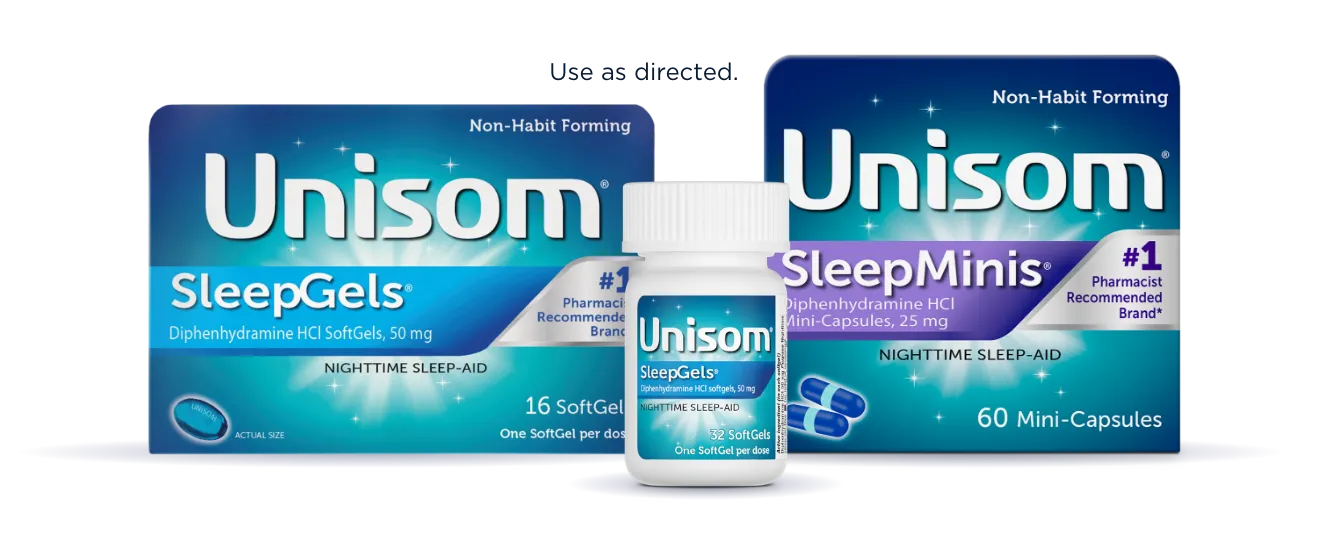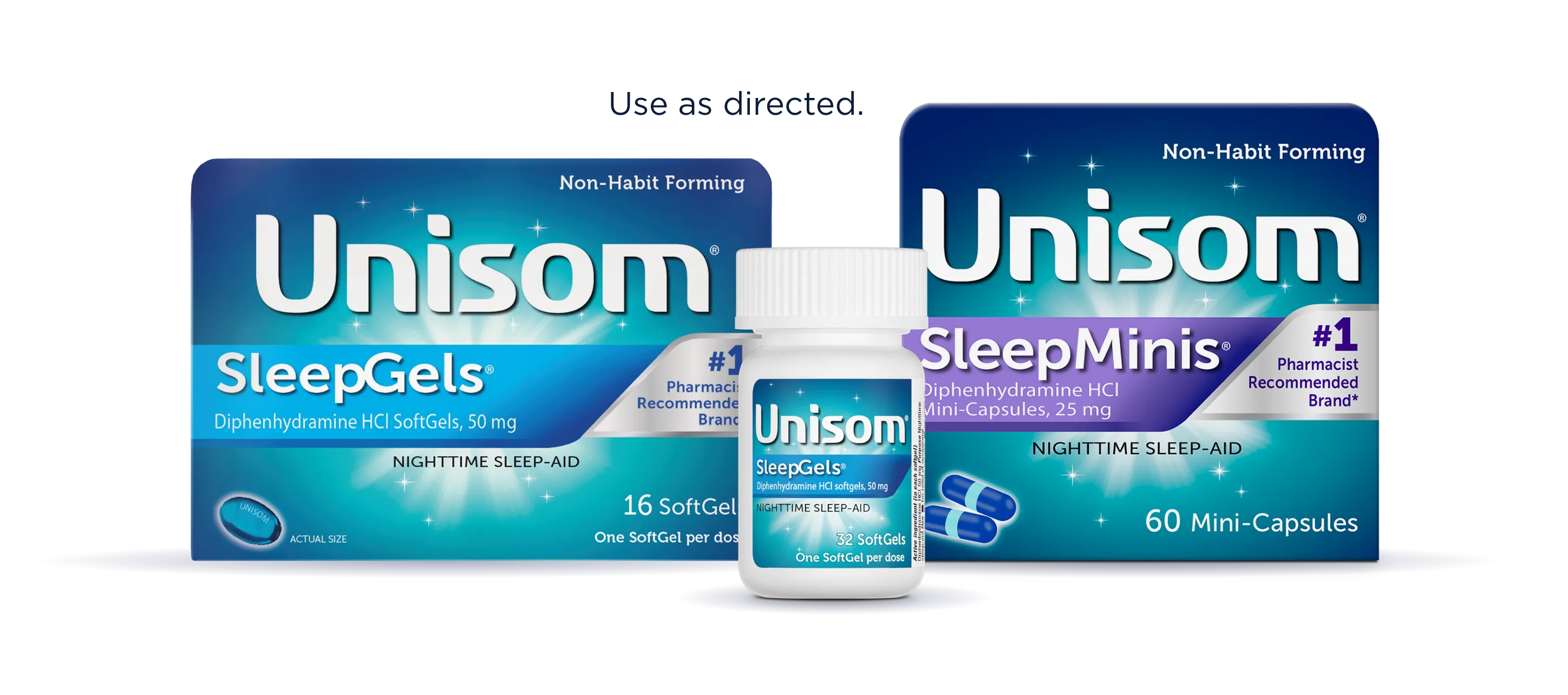Why Sleep and Health Are Connected
Your body works hard while you sleep—repairing muscles, balancing hormones, and strengthening your immune system.1 (Think of sleep as your body’s overnight maintenance shift. It ensures that everything runs smoothly when you wake up.)
Your brain loves sleep just as much as your body does. A good night’s rest sharpens memory, enhances decision-making, and improves focus.2 Ever notice how everything feels more challenging after a sleepless night? That’s because your brain didn’t get the downtime it needs to process information and recharge.
Sleep also helps regulate your nervous system, reducing anxiety and helping you manage stress more effectively.3 The benefits don’t stop there; the importance of sleep extends to heart health, weight management, and even your skin!6, 7, 8
The bottom line is that from head to toe, sleep and health are deeply linked, and there’s no denying the benefits of getting enough rest.
5 Sleep Benefits That Support Your Whole Body
When most people think about the benefits of sleep, they picture the obvious stuff, like waking up with more energy or feeling less cranky, but there’s a lot more going on behind the scenes. Here are five science-backed ways sleep seriously supports your overall health.
![]() Sleep and the Immune System
Sleep and the Immune System
Your immune system relies on sleep to keep you healthy. While you rest, your body produces cytokines and antibodies that help fight infections. That’s why poor sleep can make you more susceptible to colds and flu.4
Getting consistent, high-quality sleep helps your immune system stay strong, responsive, and ready to protect you.
![]() Sleep and Cardiovascular Health
Sleep and Cardiovascular Health
Sleep and cardiovascular health are closely intertwined. During deep sleep, your blood pressure drops and your heart rate slows. This gives your heart time to recover from daytime stress.
People who consistently sleep less than six hours a night are at higher risk for heart disease and high blood pressure.5 Poor sleep has also been linked to increased inflammation, which is a major contributor to long-term cardiovascular problems.6
![]() Better Sleep Makes for a Better Brain
Better Sleep Makes for a Better Brain
If you’ve ever felt foggy, forgetful, or emotionally off after a bad night’s sleep, you’re not imagining it. Sleep supports memory consolidation, emotional regulation, and cognitive processing.2
One of the biggest sleep benefits is supported mental clarity. When you sleep well, you think faster, stay more focused, and make better decisions. Without sleep, your brain can’t function at full capacity.
![]() Sleep Supports Metabolism and Weight Management
Sleep Supports Metabolism and Weight Management
Sleep has a powerful impact on your metabolism. It regulates hormones like ghrelin and leptin, which control your hunger and perception of fullness levels. When you’re sleep-deprived, you may feel hungrier and are more likely to reach for high-calorie foods.7
Sleep also helps manage your insulin sensitivity. Consistently missing sleep has been linked to weight gain and an increased risk of Type 2 diabetes. Supporting sleep and health means protecting your metabolic system, too!
![]() Don’t Skip Your Beauty Sleep!
Don’t Skip Your Beauty Sleep!
They don’t call it “beauty sleep” for nothing. At night, your skin’s blood flow increases, allowing it to rebuild collagen and repair damage from UV exposure and environmental stressors.8
What Happens When You Don’t Prioritize Sleep and Health?
One rough night might leave you tired and irritable, but when sleeplessness becomes the norm, your body starts to pay the price.
Here are just a few of the long-term effects associated with poor sleep:
![]() Weaker immune system4
Weaker immune system4
![]() Increased risk of heart disease and stroke5
Increased risk of heart disease and stroke5
![]() Higher risk of obesity and diabetes7
Higher risk of obesity and diabetes7
![]() Mood disorders like anxiety and depression3
Mood disorders like anxiety and depression3
![]() Ongoing fatigue and emotional reactivity
Ongoing fatigue and emotional reactivity
Neglecting sleep doesn’t just make you tired; it may increase your risk of serious health problems. If you're constantly running on empty, it’s time to take your sleep and health seriously.
5 Easy Ways to Improve Sleep and Support Your Health
The good news is that you don’t have to settle for restless nights. With a few tweaks to your routine and sleep environment, better sleep is within reach. Here’s how you can catch more zzz’s to wake up feeling refreshed and ready for the day:
![]() Set a Sleep Schedule and Stick to It
Set a Sleep Schedule and Stick to It
Your circadian rhythm works best when it’s predictable. Try going to bed and waking up at the same time every day (even on weekends). This reinforces your body’s natural sleep-wake cycle and can help improve both sleep and health.
![]() Cut Down on Screens Before Bed
Cut Down on Screens Before Bed
The blue light from phones, tablets, and TVs can interfere with melatonin production, making it harder for your brain to recognize that it’s time to wind down.
Limit screen use for at least 30–60 minutes before bed. Instead, try reading, stretching, or listening to calming music. If you do use screens at night, enable night mode to reduce blue light exposure.9
![]() Watch What (and When) You Eat and Drink
Watch What (and When) You Eat and Drink
Caffeine and alcohol are two of the biggest culprits when it comes to disrupted sleep. Avoid caffeine after mid-afternoon (try sipping on caffeine-free herbal teas), and limit alcohol close to bedtime—it may make you drowsy at first, but can interrupt deep sleep later in the night.10
Eating a large meal right before bed can also make it harder to sleep. Aim to finish dinner 2–3 hours before bedtime, and avoid spicy or heavy foods that can cause GI discomfort.
![]() Create a Sleep and Health-Friendly Environment
Create a Sleep and Health-Friendly Environment
Your bedroom should be your sleep sanctuary. You might not realize it, but certain elements in your room may contribute to your sleeplessness. Here are some tips to create a space that promotes better sleep:
![]() Keep your room slightly cool. Your body temperature naturally drops as you fall asleep, so a cooler room helps signal your body that it’s time to rest.11
Keep your room slightly cool. Your body temperature naturally drops as you fall asleep, so a cooler room helps signal your body that it’s time to rest.11
![]() Make your room as dark as possible. Light can disrupt your body’s sleep cycle, so consider investing in blackout curtains if needed.
Make your room as dark as possible. Light can disrupt your body’s sleep cycle, so consider investing in blackout curtains if needed.
![]() Silence is golden, but many people find white noise relaxing. Try using a white noise machine or streaming white noise sounds (just make sure your screen is off to avoid blue light exposure).
Silence is golden, but many people find white noise relaxing. Try using a white noise machine or streaming white noise sounds (just make sure your screen is off to avoid blue light exposure).
![]() Make sure you’re sleeping on a comfortable mattress. Choose one with the right firmness to support your sleep position and body weight for restful, uninterrupted sleep.
Make sure you’re sleeping on a comfortable mattress. Choose one with the right firmness to support your sleep position and body weight for restful, uninterrupted sleep.
![]() Consider Using a Sleep Aid
Consider Using a Sleep Aid
Even with good habits, sleep doesn’t always come easily. If you’re still tossing and turning, an over-the-counter sleep aid can help bridge the gap while you build more consistent routines.
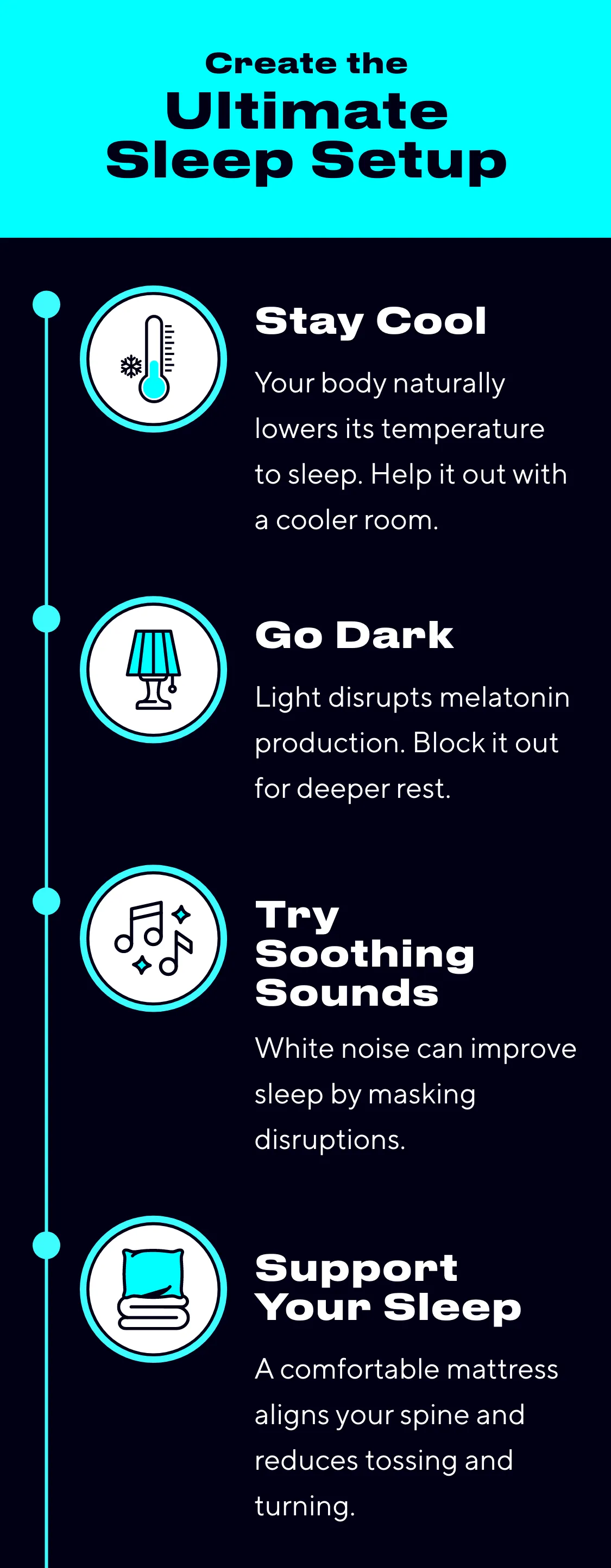
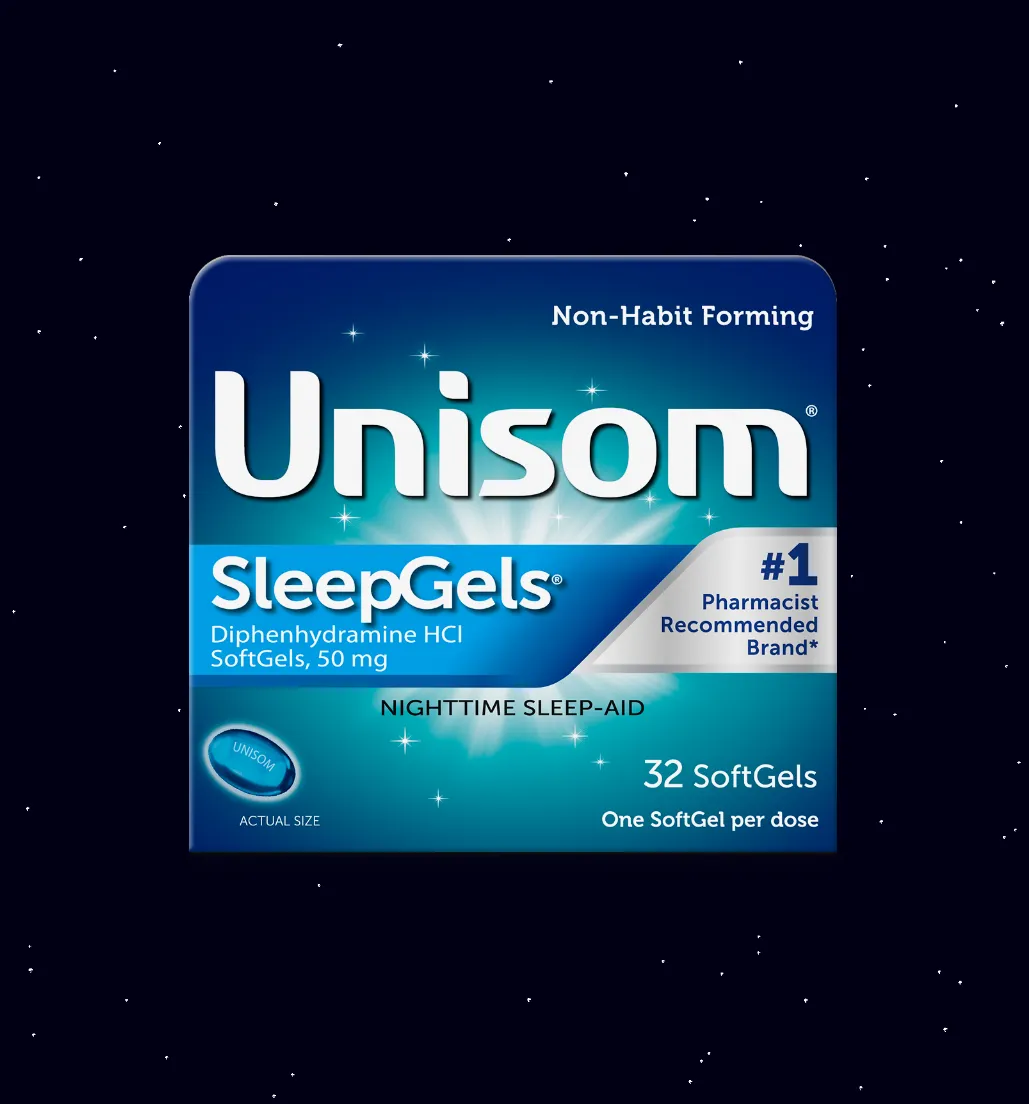
Unisom® SleepGels®
Get a better night’s sleep with Unisom® SleepGels®. They help you fall asleep faster, wake up less, and feel refreshed in the morning. They’re also non-habit-forming and safe when used as directed.
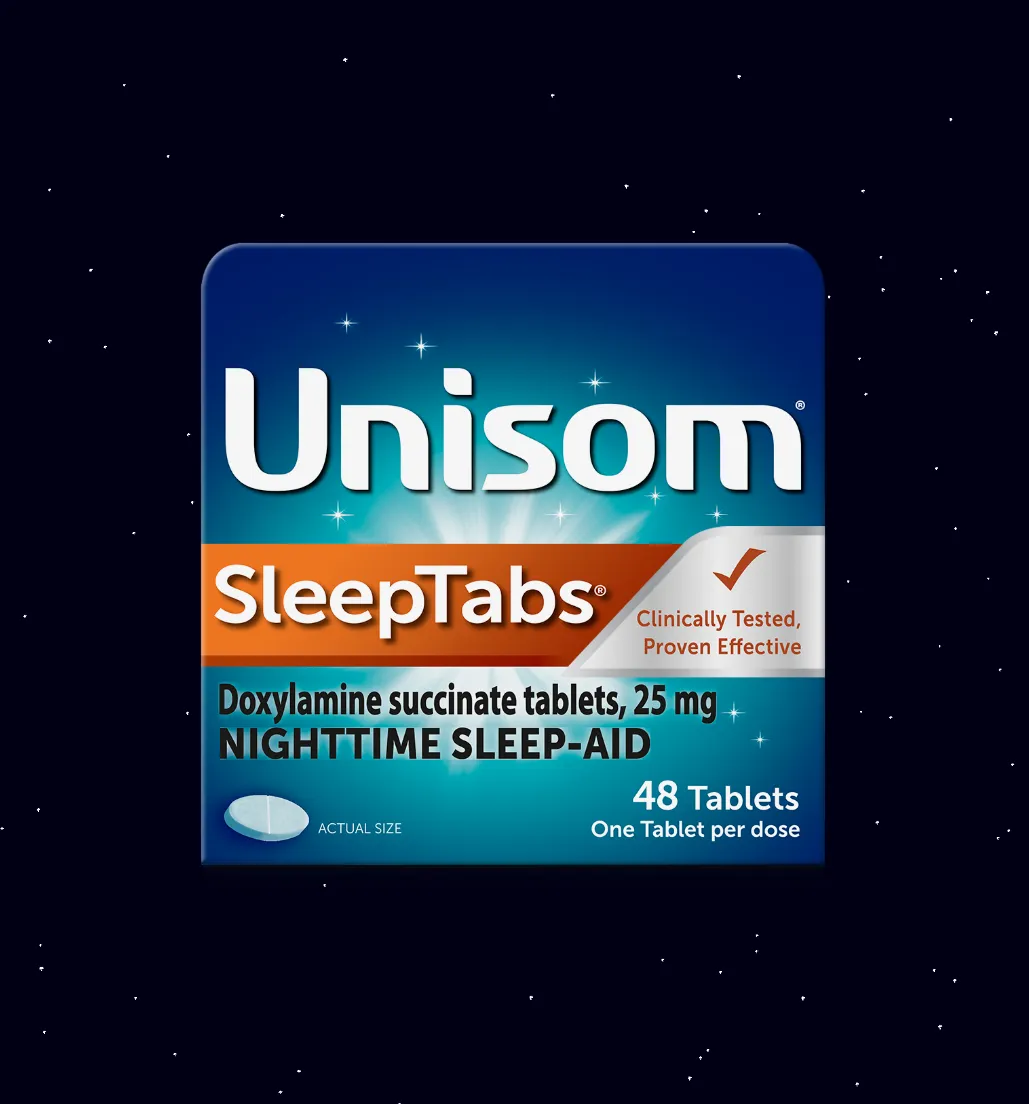
Unisom® SleepTabs®
Settle in and fall asleep up to 30 minutes faster with Unisom® SleepTabs®. They’re clinically tested and proven effective in helping you fall asleep faster and stay asleep longer.* Plus, they’re non-habit-forming and safe when used as directed.
*Compared to placebo.
References
1. WebMD. (n.d.). What happens when you sleep? WebMD. Retrieved June 12, 2025, from https://www.webmd.com/sleep-disorders/ss/slideshow-sleep-body-effects
2. Sleep Foundation. (2023). How lack of sleep impacts cognitive performance and focus. Sleep Foundation. Retrieved June 12, 2025, from https://www.sleepfoundation.org/sleep-deprivation/lack-of-sleep-and-cognitive-impairment
3. Suni, E. (2024, April 23). Anxiety and sleep. Sleep Foundation. Retrieved June 12, 2025, from https://www.sleepfoundation.org/mental-health/anxiety-and-sleep
4. Mayo Clinic. (2025, January 24). Lack of sleep: Can it make you sick? Mayo Clinic. Retrieved June 12, 2025, from https://www.mayoclinic.org/diseases-conditions/insomnia/expert-answers/lack-of-sleep/faq-20057757
5. Mayo Clinic. (n.d.). Sleep deprivation: A cause of high blood pressure? Mayo Clinic. Retrieved June 12, 2025, from https://www.mayoclinic.org/diseases-conditions/high-blood-pressure/expert-answers/sleep-deprivation/faq-20057959
6. Harvard Health Publishing. (2024, April 29). How sleep deprivation can cause inflammation. Harvard Health. Retrieved June 12, 2025, from https://www.health.harvard.edu/healthbeat/how-sleep-deprivation-can-cause-inflammation
7. Papatriantafyllou, E., Efthymiou, D., Zoumbaneas, E., Popescu, C. A., & Vassilopoulou, E. (2022). Sleep deprivation: Effects on weight loss and weight loss maintenance. Nutrients, 14(8), 1549. Retrieved from https://www.ncbi.nlm.nih.gov/pmc/articles/PMC9031614/
8. Mayer, B. A. (2022, August 3). Don’t sleep on the importance of beauty rest. Healthline. Retrieved June 12, 2025, from https://www.healthline.com/health/beauty-skin-care/beauty-sleep#:~:text=This%20is%20true%20for%20your,reducing%20wrinkles%20and%20age%20spots
9. Newsom, R. (2024, January 12). Blue light: What it is and how it affects sleep. Sleep Foundation. Retrieved July 8, 2025, from https://www.sleepfoundation.org/bedroom-environment/blue-light
10. Bryan, L. (2024, May 7). Alcohol and sleep. Sleep Foundation. Retrieved July 8, 2025, from https://www.sleepfoundation.org/nutrition/alcohol-and-sleep
11. Pacheco, D. (2024, March 7). Best temperature for sleep. Sleep Foundation. Retrieved June 12, 2025, from https://www.sleepfoundation.org/bedroom-environment/best-temperature-for-sleep
